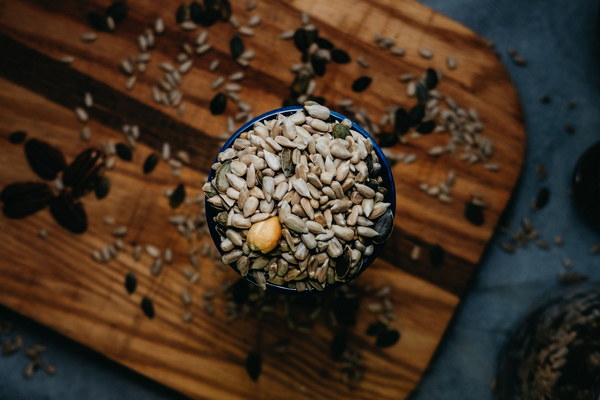Postoperative Dietary Guidelines for Bladder Epithelial Cancer Patients A Nutritional Roadmap to Recovery
Introduction:
Bladder epithelial cancer is a challenging condition that requires comprehensive treatment, including surgery. Postoperative recovery is a critical phase, during which the body needs proper nutrition to support healing and boost immune function. This article outlines a dietary roadmap for bladder epithelial cancer patients following surgery, providing essential guidelines for a healthy and nutritious diet during the recovery process.
Section 1: Understanding the Nutritional Needs of Bladder Epithelial Cancer Patients
1.1. Energy and Protein Intake:
After surgery, the body requires additional energy and protein to repair and rebuild damaged tissues. Patients should aim to consume at least 1.2 to 1.5 grams of protein per kilogram of body weight daily. Good sources of protein include lean meats, fish, eggs, dairy products, legumes, and nuts.
1.2. Caloric Intake:
Caloric intake should be adjusted based on the patient's weight, height, age, and activity level. A general guideline is to consume around 30 to 35 calories per kilogram of body weight daily. High-calorie, nutrient-dense foods, such as avocados, nuts, seeds, and nut butters, can help meet caloric needs without overloading the digestive system.
1.3. Hydration:
Staying hydrated is crucial for postoperative recovery. Patients should aim to drink at least 2 to 3 liters of water per day, unless otherwise instructed by their healthcare provider. Water-rich foods, such as fruits and vegetables, can also contribute to hydration.
Section 2: Key Nutrients for Postoperative Recovery
2.1. Vitamin C:
Vitamin C plays a vital role in wound healing and supports the immune system. Citrus fruits, berries, bell peppers, and leafy greens are excellent sources of vitamin C. Aim for at least 75 to 90 milligrams of vitamin C daily.
2.2. Vitamin E:
Vitamin E is an antioxidant that helps protect cells from damage. Almonds, sunflower seeds, and spinach are good sources of vitamin E. Aim for at least 15 milligrams of vitamin E daily.
2.3. Zinc:

Zinc is essential for wound healing and immune function. Oysters, beef, and legumes are rich in zinc. Aim for at least 11 milligrams of zinc daily for men and 8 milligrams for women.
2.4. Iron:
Iron is crucial for red blood cell production and oxygen transport. Good sources of iron include red meat, poultry, fish, legumes, and fortified cereals. Aim for at least 18 milligrams of iron daily for men and 8 milligrams for women.
Section 3: Foods to Avoid and Considerations
3.1. Foods to Avoid:
Patients should avoid certain foods that may irritate the digestive system or hinder recovery. These include spicy foods, high-fat and fried foods, alcohol, caffeine, and carbonated beverages.
3.2. Special Considerations:
If the patient has undergone urinary diversion, they may need to modify their diet to accommodate the new urinary system. Consult with a healthcare provider or a registered dietitian for specific dietary recommendations.
Conclusion:
A well-balanced, nutrient-rich diet is essential for bladder epithelial cancer patients during the postoperative recovery phase. By following these dietary guidelines and focusing on key nutrients, patients can support healing, boost their immune system, and improve overall well-being. Always consult with a healthcare provider or registered dietitian for personalized dietary advice and support throughout the recovery process.









